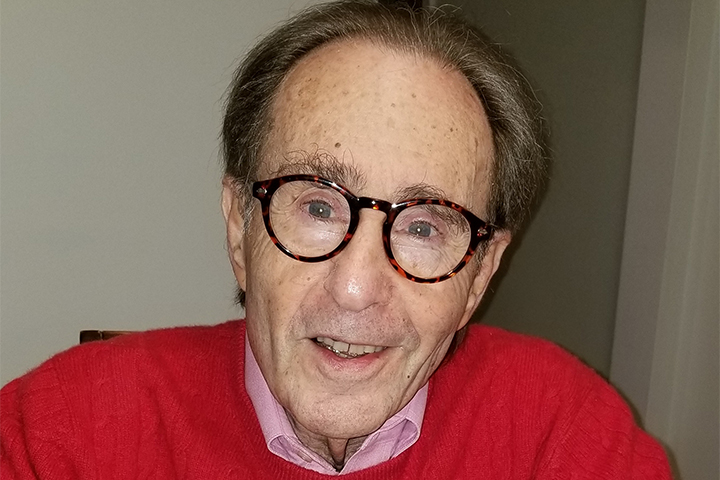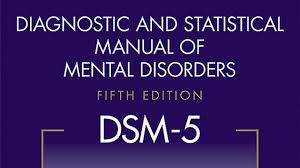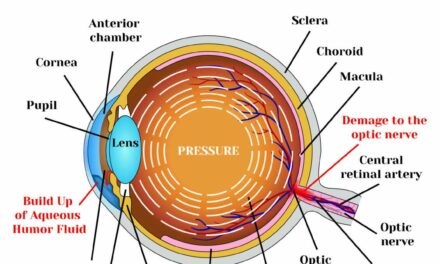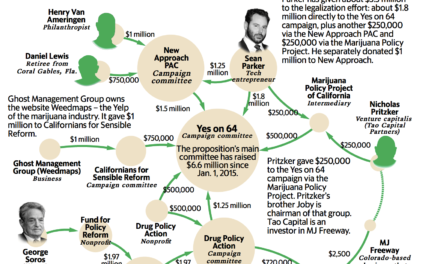By Fred Gardner 1/2/21
Joe D. Goldstrich, MD, is 82, sharp as a tack, and intent on avoiding COVID-19. In 1963, as a fourth-year medical student on the neurosurgical service at Parkland Hospital in Dallas, he was one of the doctors in the Emergency Room when JFK was brought in. After a career as a cardiologist, he came out of retirement to specialize in cannabis medicine.
“Cannabis and COVID-19” was the title of a note by Dr. Goldstrich published online by O’Shaughnessy’s that succinctly listed the ways components of the plant might help fight COVID-19 infection. It also cited research published in the journal Cancers in August 2020 suggesting that Cannabis may weaken the response to COVID-19 immunization.
So here we have another situation where two contradictory thoughts must be kept in mind. To oversimpilify: cannabis can be helpful in fighting COVID-19 infection, but detrimental when you’re getting vaccinated. Trusting that O’S readers know something about the benefits of cannabis, I quote only the cautionary-tale aspect of Goldstrich’s note:
“Immunotherapy is a modern-day cancer treatment designed to stimulate the immune system to fight the cancer. The only study to date on the use of cannabis in conjunction with immunotherapy was conducted by Israeli scientists and published in the journal Cancers. They found that ‘It may be associated with worsening clinical outcomes. Cancer patients using cannabis showed a significant decrease in time to tumor progression and decreased overall survival compared to nonusers.’
“The most likely reason for cannabis use impairing the response to immunotherapy is that it is preventing the immune system from responding to the stimulus that is required for the immunotherapy agent to work… Immunotherapy and immunization both attempt to stimulate the immune system to produce antibodies that will attack a foreign entity in the body, whether it be cancer cells or the virus causing COVID-19. Because of the strong possibility of cannabis use preventing a full immune response to the COVID-19 vaccine (both Pfizer and Moderna), as it does with immunotherapy, I suggest withholding cannabis (both CBD and THC) for 24 to 36 hours before the first immunization, and not resuming cannabis use until at least two weeks after the second immunization. Abstinence from cannabis might provide a stronger immune response and be better able to prevent COVID-19 infection. This would be true for any immunization.
“This should be a no-brainer for recreational cannabis users intent on avoiding COVID-19. Patients using cannabis for serious medical conditions such as epilepsy, cancer and autoimmune diseases should discuss this conundrum with their physician.”
Goldstrich also recommends laying off Palmitoylethanolamide (PEA), an endocannabinoid sometimes used for arthritic pain. “PEA can also affect the immune system,” he wrote, “and should also be withheld in conjunction with immunization.” Your correspondent had been using it with some apparent success. A year ago I had been unable to play the guitar. Now, after about six months taking PEA, I still can’t play the guitar; but I can form an F-chord.
A prompt response to Goldstrich’s note came from Dr. Dustin Sulak, whose website Healer.com is a source of information widely trusted by medical cannabis users across the country (and the world). “I think Joe D’s paper is accurate,” he emailed, “but I think the discussion needs to include the potential negative impact of cannabis abstinence on sleep and stress resilience, which both have been proven to impact immunization response. In every individual, multiple factors influence immune function. If one’s cannabis use can easily be paused to potentially maximize response to immunization, that’s likely a good idea, but most of my patients use cannabis to treat symptoms like pain, anxiety, and sleep problems; in these cases, stopping cannabis may or may not have a net beneficial effect.” Sulak included links to three relevant papers:
• Effect of Sleep Deprivation on Response to Immunizaton
• Sleep and Antibody Response to Hepatitis B Vaccination
(Suggested strategy for heavy users who are getting vaccinated but can’t bring themselves to abstain. Focus your thoughts on the heaviest problems you face. Consider in detail the dangers looming for your family members, young and old, and the friends you care about. Imagine the worst outcomes in detail and admit that they’re likely to happen, it’s just a matter of time… When your stress level reaches 11, check out the research cited by Sulak showing that stress undermines the body’s immune response. Break up a bud and roll a joint while reckoning that the amount of cannabinoids and terpenes you’ll be inhaling from a few hits is minuscule compared to the contents of the cannabis oil you’ve been ingesting all these years. If anyone accuses you of “rationalizing” or “denial,” tell them you’re practicing “harm reduction.”)
Goldstrich sent Sulak a recently published paper about the potential benefits of a compound called N-Acetylcysteine (NAC) in countering COVID-19. (Recognizing the limited effectiveness of the vaccines, researchers have been testing existing medications that might be useful.) Lead author Zhongcheng Shi describes NAC as “a forgotten immune-modulating agent” that has antioxidant, and anti-inflammatory properties. It is currently used to treat gravely ill sepsis patients. This under-publicized disease afflicts 1.5 million people annually in the US, according to the CDC, and kills 250,000. It occurs when infection leads to inflammation throughout the body and multiple organ systems fail.
Sulak, 41 and in excellent health, had come down with laboratory-confirmed COVID-19. “So far, it feels like a mild-moderate sinusitis, some myalgia/malaise, and headache — overall not too bad,” he reported. “Interestingly, I’ve found that appropriately dosed cannabis relieves or completely resolves the symptoms for a few hours.” Sulak reiterates that “While evidence suggests cannabis may be counterproductive for those receiving the vaccine, using cannabis to treat COVID-19 could be helpful, as compounds in cannabis have been shown to decrease the inflammatory cascade associated with acute respiratory distress syndrome, at least in animal models, and cannabis can be used to relieve pain and other symptoms, and to promote restful sleep.” He reminds us that patients with current respiratory symptoms should avoid smoking.
Sulak criticized “the hesitancy of mainstream medicine to offer early outpatient treatment for COVID, despite promising early evidence of safe and effective treatments like the anti-parasitic drug ivermectin, vitamin D3, vitamin C, zinc, quercetin, and melatonin.” He promotes the Front Line COVID-19 Critical Care Alliance’s I-MASK+ protocol as well as the Association of American Physicians and Surgeons’ Guide to Home-based COVID treatments. “I think these two documents have already saved thousands of lives,” he adds.
A note on word usage: COVID-19 is the name of the disease, with its wide array of deterimental effects. SARS-Cov-2 is the name of the virus itself.





